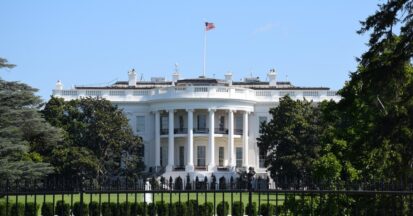Author
George R. Tyler
The U.S. Senate was designed in 1787, according to James Madison (one of the U.S.’s founding fathers) to disproportionately empower the slave-holding states of the American south — enticing them to join the new nation.
A political bribe that keeps paying off
The political bribe consisted of granting each state two Senators — regardless of the size of their respective population. In the 21st century, that 18th century relic grants some voters vastly more influence than others.
For instance, Wyoming, with 582,328 people, has two Senators — just like California with a population of 39.8 million (or 68 times larger).
Eliminating that malapportionment requires a constitutional amendment — which would be unlikely to pass.
However, the impact of this antiquated rule — further aggravated by a continuous shift of the U.S. population to the coasts and the big cities — could at least be ameliorated somewhat by providing statehood to residents of Washington, D.C. and to Puerto Rico.
This should happen — even if for no other reason than justifying their residents’ sacrifices in the nation’s wars.
Washington, D.C. and the Australian precedent
For Washington, D.C., the Australian constitution provides a suitable template. It established the national capital at Canberra as a distinct geographic enclave — sliced from New South Wales in 1908.
However, Australia´s constitution was silent on the enclave voters’ rights. So, as its citizenry grew, the country’s parliament remedied the de facto disenfranchisement of the citizens of Canberra.
Laws in 1948 and 1973 expanded the Australian House of Representatives and the country’s Senate to accommodate new members elected to represent those citizens.
Australia’s experience informs the debate over statehood for Washington, D.C. Like Australia, the U.S. Constitution was silent regarding resident voting rights when establishing Washington as the nation’s capital.
The U.S. Congress dithers
And, as in Australia, that enables the status to be resolved directly by the national legislature. But, in contrast, the U.S. Congress has dithered.
Ever since 1888, it has rejected pleas for statehood from the people of Washington, D.C.
This rejection was repeated even though Congress utilized Constitutional powers under Article IV, Section 3 to create dozens of new U.S. states.
In the process, it added hundreds of new members to the House of Representatives and — dozens of additional seats to the U.S. Senate.
Seven reasons for statehood for Washington, D.C.
1. The population of Washington, D.C. exceeds that of Wyoming and Vermont — and nearly equals that of Alaska.
2. It is prosperous with a highly educated workforce — the median household income in Washington, D.C. of $85,000 in 2018 is well above other states. In fact, Washington D.C. has a GDP/capita higher than any state in the United States.
3. Its high income level means that Washington, D.C. is less dependent on federal money than about 20 other U.S. states — including Kansas, Nebraska and Alabama according to the Tax Foundation.
4. Residents of Washington, D.C. pay more federal income taxes than 22 state — and the most of all states on a per capita basis. The basic principle of “no taxation without representation” is still violated for the more than 700,000 residents of Washington, D.C.
5. D.C. residents have borne a heavier burden than others in U.S. wars. Despite its small population, it suffered more casualties in World War II than 19 states. During the Vietnam War, its per capita casualty rate was greater than 33 other states.
6. Lacking the status of a state, local laws and ordinances enacted by voters or elected leaders in Washington can be vetoed or modified without appeal by Congress.
7. The Insurrection of January 6, 2021 dramatized that — without statehood and without a governor, the Mayor of Washington, D.C. must request any deployment of the National Guard from the U.S. Army Secretary.
Given the now clearly plausible reluctance of a president to protect federal property (which would remain so under D.C. statehood), the Mayor of Washington D.C. has no control over protecting federal lands from rioters by keeping them confined to the 66 square miles of a future D.C. state — and away from such nationally critical federal buildings such as the Capitol by calling for National Guard reinforcement herself.
The 2020 breakthrough
In a breakthrough, the House of Representatives for the first time voted on June 26, 2020 to grant statehood to Washington, D.C.
And the new Senate should follow suit — rejecting several objections raised in the past.
It has been argued, for example, that Maryland absorb Washington’s residents — unrealistic because the Maryland legislature is opposed.
Others have argued that the U.S. Constitution must be amended to permit D.C. statehood.
But amending the Constitution is unnecessary: The statehood proposal approved by the U.S. House last year carves out a small federal district enclave — “the Capitol” — whose federal buildings remain under Congressional control, thus satisfying Constitutional language.
Power politics and the continuing racism
In the end, the issue is one of sheer power politics mixed with racism. Washington, D.C. is 45% black and African American — and 43% white and Hispanic. And 92% of D.C. residents voted for Joe Biden as President of the United States in 2020.
Because of its diversity and urban nature, it is hard to imagine that any Republican would stand a chance to win any one of three seats of a D.C. State (2 senators and 1 Member of the House).
And so, the reasoning of today’s Republicans to deny Washington, D.C. statehood ultimately remains as incendiary as that the former soldier of the Confederacy, Senator John Tyler Morgan, 150 years ago.
He opined in 1877 that Congress had to “burn down the barn to get rid of the rats…the rats being the negro population and the barn being the government of the District of Columbia.”
The U.S. has no House of Lords option
The United States is an outlier in the international context in retaining a powerful but malapportioned legislative body that reflects neither national sentiment nor realities.
Indeed, the European Union rejected that option entirely — adopting a unicameral, apportioned parliament.
The U.S. Senate is severely malapportioned. Just how malapportioned is made evident by these numbers:
1. Away from the rarefied world of the U.S. Senate, the 60 senators from the 30 smallest U.S. states represent fewer voters than the six senators from California, Texas and Florida.
2. Similarly, the majority 52 senators from the smallest 26 states collectively represent only 17% of the U.S. population.
3. Those states also tend to be rural, less diverse than the nation, conservative and more supportive of the Republican Party than the United States generally.
4. Their over-representation has frequently enabled that political party to dominate the Senate in defiance of majority American opinion.
5. Of its 100 members in 2020, for instance, only 47 were Democrats — even though they received 56% of all votes cast nationwide (2014-2018) for that Senate.
Enter the U.S. Constitution
Unfortunately, the Senate structure is shielded from change by Article V of the Constitution.
Therefore, reducing its authority in national politics, as was done in the UK for the House of Lords, is unfeasible.
The only practical means to dilute its bias is to expand the Senate’s membership to include residents of Washington, D.C. and Puerto Rico.
True, these two entities are more urban, diverse, progressive and supportive of the Democratic Party. However, that only redresses the current fundamental imbalance in terms of fair and appropriate representation a bit.
Conclusion
With full control of the federal government, providing statehood for Washington, D.C. and Puerto Rico enables President Biden to reward service to the United States — while also improving the representative character of the Senate at least a little bit.














